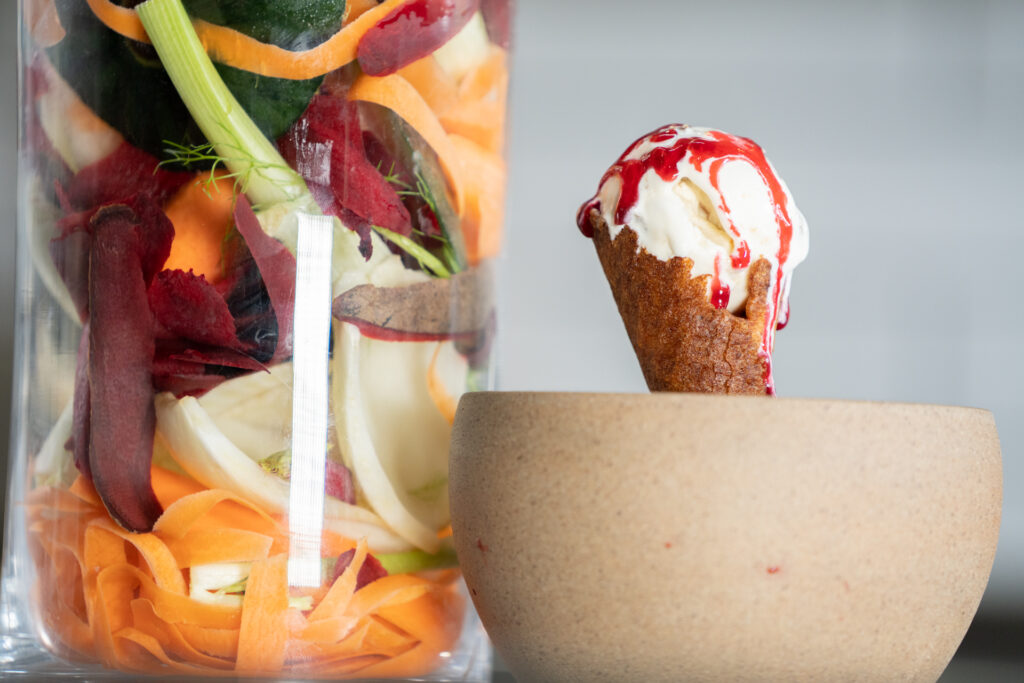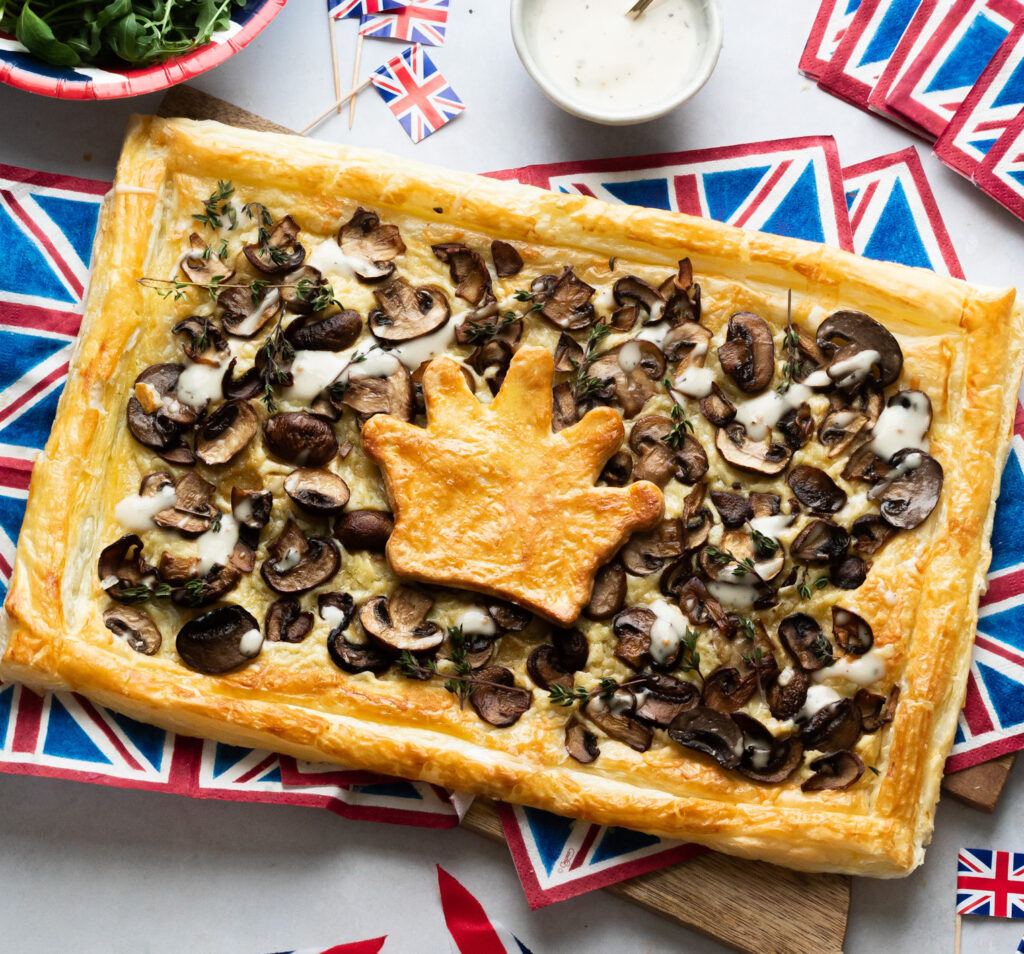Organic farming is better for the health of people, the planet and our wildlife. It helps protect nature and our soils, water and air. Certified organic products use no artificial fertilisers and very limited, if any, pesticides, which are sadly a key driver of insect and pollinator decline.
On average, plant, insect and bird life is 50 per cent more abundant on organic farms, and there are around 75 per cent more wild bees, according to the Soil Association. This is because organic farmers depend on the whole ecosystem to control pests and manage their soils.
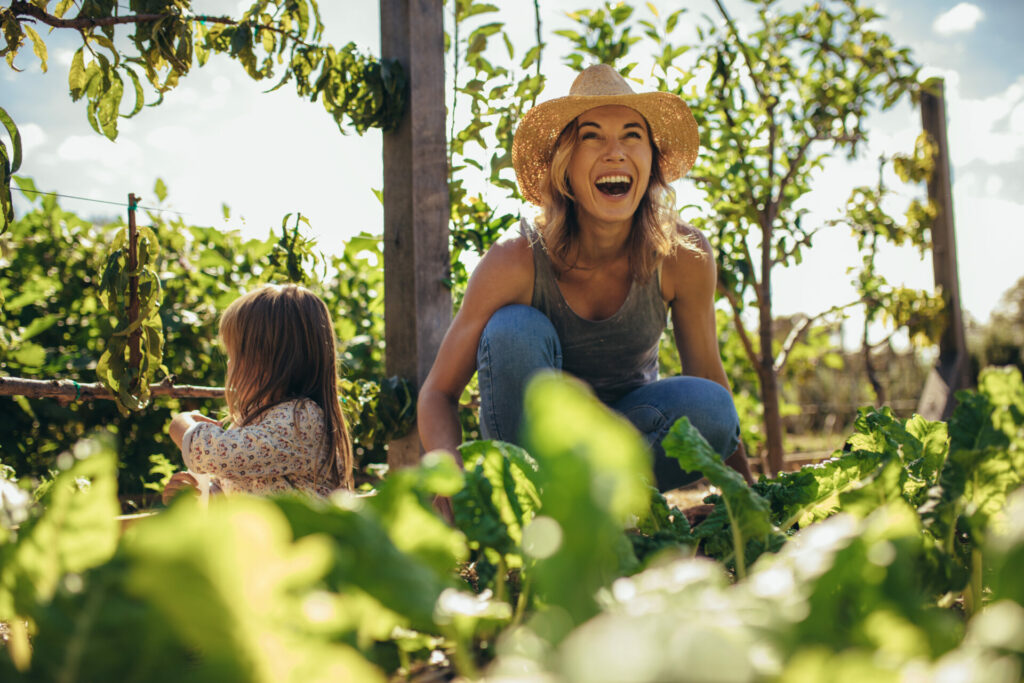
As well as helping protect vital ecosystems, organic farming is also better for human health. It helps reduce your exposure to pesticides and also contains fewer additives, preservatives and antibiotics from farmed animals.
On average, plant, insect and bird life is 50 per cent more abundant on organic farms, and there are around 75 per cent more wild bees, according to the Soil Association.
We desperately need more resilient, organic farms and a more sustainable way of producing food. By supporting organic farms, you can help make a difference and build a more sustainable future. The more that we all shop organic, the more available and affordable it will become. So here at The Ethicalist we’ve rounded up the best ways to go organic wherever you are…
Shop Locally
Support organic farmers local to you by visiting a nearby farm shop or subscribing to an organic fruit and vegetable box delivery scheme. Local produce also has lower food miles and helps support your community and economy.
Delivered directly to your door, vegetable box schemes take the hassle out of looking for organic produce, saving you time and bringing fresh food to your doorstep each week.
Grow Your Own
A brilliant way to source organic produce, and to really understand the food production system, is to grow your own. It’s fun, rewarding and helps you to appreciate the time and work that goes into growing organic fruit and vegetables. Start small with some homegrown herbs in pots on your windowsill or balcony, or try some simple vegetables such as tomatoes, courgette or spinach.
If you already grow your own, consider whether your seeds, compost and fertiliser are organic and switch these where possible. Try to leave some areas of your plot untouched so that wildlife and a natural balance can establish. This will encourage natural predators for pests, such as ladybird larvae which will reduce numbers of aphids and help protect your crops without the need for pesticides.
Try Veganic
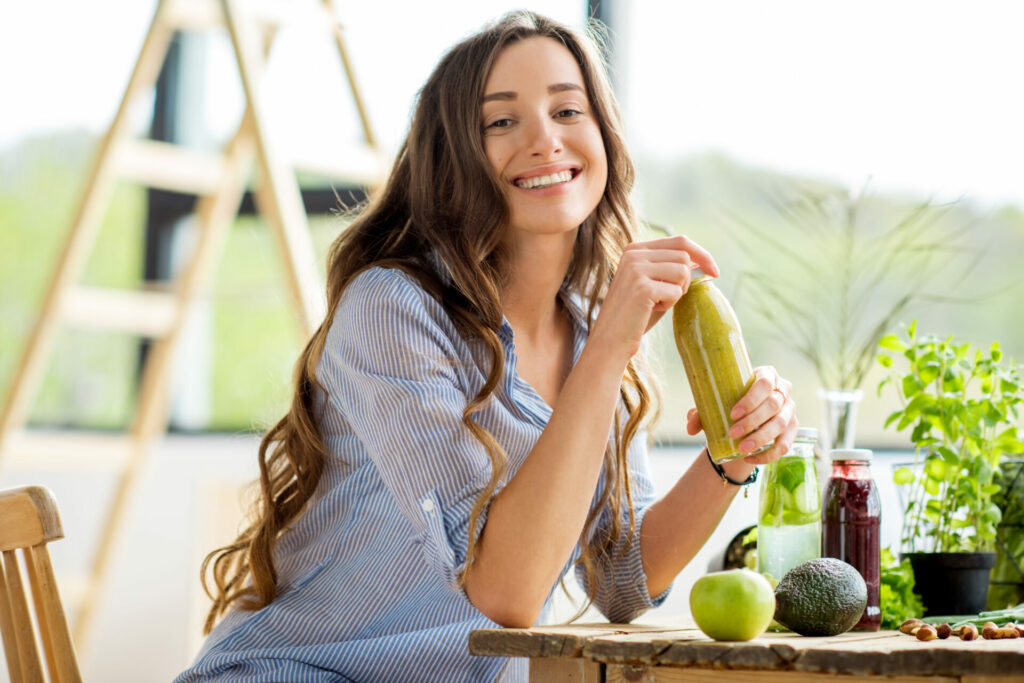
A step further than organic, veganic produce is both vegan and organic. It uses only plant-based fertilisers and helps support wildlife and a balanced ecosystem, without using any animal products. Some small farmers are now growing veganically so you may be able to source this locally or try incorporating these methods into your own garden.
Organic, Plastic-free and Seasonal
Organic produce tends to be more expensive, so choose fruit and vegetables that are seasonal and grown close to your home. When a food is in season it has a lower carbon footprint from travel and is likely to be more affordable. Compare prices for this from local suppliers and in supermarkets. Keep in mind that often organic food is, unfortunately, packaged in plastic at supermarkets to make it easy to distinguish. Work out what works best for you and your budget.
Make Informed Choices
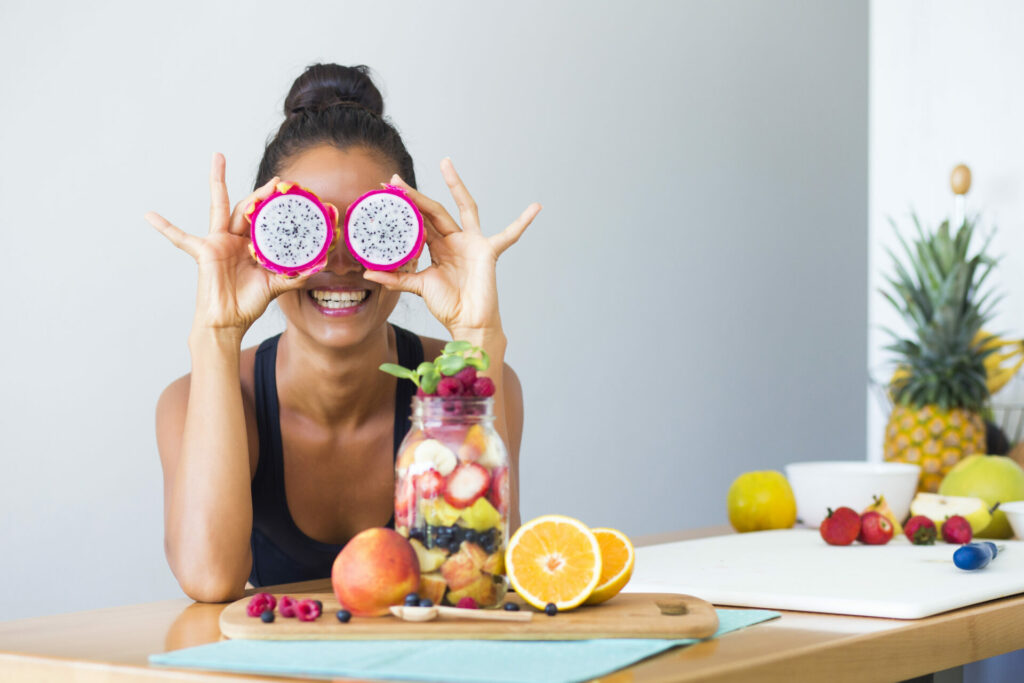
Pesticides used in non-organic growing can leave traces on our food, known as residues. The Pesticide Action Network has created the ‘Dirty Dozen’ – a list of the top 12 fruit and vegetables found to have pesticide residues. If you’re not sure where to start with shopping organic or your budget is limited, this list is useful for choosing which produce to prioritise.
Apples, strawberries, parsnips, citrus fruits and cherries were among those found to have the highest pesticide residues, so you might prefer to purchase these as organic.
Choose Organic Restaurants
As well as the food you buy or grow at home, try to source and support local and independent organic restaurants and cafes. More restaurants are now getting certified as organic, with chefs promoting more sustainable and organic meals out.
Organic Beauty
Organic products include more than just food and drink. Try to choose organic beauty and wellbeing products, many of which are now also certified. More than just being labelled as natural, these businesses don’t test on animals or use chemicals, parabens, phthalates, synthetic dyes or fragrances. This might include switching to an organic and plastic-free shampoo bar, choosing organic make-up products or replacing your tube of toothpaste with a jar of organic toothpowder.
Organic Textiles
The fashion industry is hugely polluting and it’s just as important to try to choose organic clothing as it is food. Look for clothing that is certified and labelled as organic. This will usually be made of cotton but may also include hemp, flax or wool. If you don’t have the budget for organic clothes, try to care for and repair the clothes you do have and source any new garments from second-hand or charity shops. After all, the most sustainable new pair of shoes is the pair that already exists.
Use Your Voice
Tell businesses and those in power that you want to see more organic growing. If your local town or city lacks organic shops or cafes, then enquire with local businesses about where they source their food or let them know you would be interested in organic options. Where you spend your money speaks and you have the power to suggest change. Write to your local representative to ask them to support organic farming and ensure its importance is discussed.
Ellen Tout’s book, How To Reduce Your Carbon Footprint: Practical Ways to Make a Real Difference, is available to order now.









